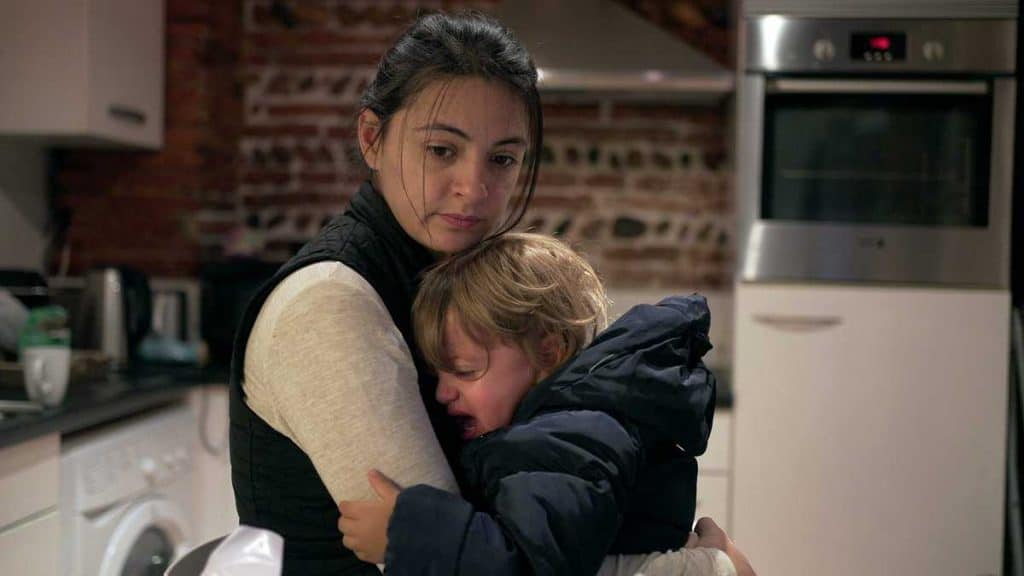As parents, you do your best to prepare your child for the world and adult life.
You choose your educational style according to what you feel is the best option for raising an intelligent, independent and accomplished child.
You rely on what your parents have taught you, but you also make efforts to move away from the toxic patterns you’ve noticed in them.
Yet there’s one area where I’m sure you’re still making mistakes (just like me).
In fact, there are what are known as eternal wisdoms that are passed down from generation to generation.
Generally, they enable your children to understand essential things about the world, not to be too anxious about the future and to live in the present moment.
But there are also toxic wisdoms that we pass on to our children without realizing that they carry a dubious message.
But for one reason or another, we continue to teach them to our children!
Today, we’re going to analyze these wisdoms and discover why it’s imperative to stop repeating them to our little ones.
1. More money – more problems

Meaning: money is the root of all evil
Oh, I heard this so often as a child and teenager, not just from my parents, but from everyone I know.
But as I got older, I began to decipher the meaning behind it and copied: if we repeat something over and over again and are programmed to do it, that’s exactly what we get in our lives!
I’d be exaggerating if I said that statement was the root of all the money problems in my life.
But when I separated myself from this wisdom, my perception began to change.
So did my reality, to the point where I forgot for a moment what that proverb really meant.
Of course, things in themselves, including money, are defined neither as good nor as bad.
For example, we can say to our children:
What we do with money and how we do it can be good or bad.
Power is in our hands, not in the hands of money.
2. Money doesn’t grow on trees

Meaning: it’s extremely difficult to earn a living
Another statement about money that gives us and our children the wrong idea about how to earn a living.
This proverb means that earning money isn’t easy.
But is it really true?
Do we want our children to think that earning money is so difficult that they’d rather not do it at all?
When we say this to children, it’s usually when they want to buy something or spend our money in some way, which we don’t usually agree with.
For example, instead of the sentence, we can say:
I’d rather not spend my money on that right now because we have other priorities.
This sentence may be just as impenetrable to children as the first, but it will at least give them a better image of money.
But also about priorities in life.
3. You can’t buy happiness

Meaning: capitalism trains us to pursue wealth
This is the last statement about money, I promise!
This one could also be partly right, but it’s counterproductive.
Of course, we shouldn’t tell children otherwise, that money can make you happy.
That would be both radical and a little extreme.
But money can buy security, freedom and time, and that can seem like luck to some people.
Avoid this phrase altogether when talking to children.
Find other equivalents and examples to help them understand how money works.
Money makes life easier, but it shouldn’t be your top priority!
4. You can have everything you want

Meaning: everything in life will be yours.
Actually, I agree, but you have to be careful when talking to children.
Most of the time, they don’t know exactly what they want.
Or they want things that are insignificant or too expensive (for the parents).
However, if they know what they want, why they want it and what they want to do with it, we have to support them.
It’s bad for children’s confidence and imagination to destroy their ideas and dreams.
Of course, you shouldn’t implement crazy ideas, but a good dose is key.
Perhaps it would be best if we used Walt Disney’s famous quote and said:
If you can dream it, you can achieve it too!
It sounds better and is more inspiring.
5. It’s not the end of the world

Meaning: you’re exaggerating and imagining stupid consequences.
But that seems to be the case most of the time when kids (and not just kids) have a problem.
Okay, maybe it’s not the end of the world, but it’s the end of their world.
They see it that way because they can’t usually see far into the future.
We adults can know certain things from our experience and try to pass them on to children.
But in situations where they’re struggling, children can’t get away from the problem and look at it objectively like we can (sometimes).
In any case, it’s best to say:
I understand that you’re sad.
I went through similar things when I was young.
That way, you’re showing empathy, and maybe your child will want to talk to you about it.
You still need to help and let your child know that you’re there for him or her.
6. I only want the best for you

Meaning: I’m the only one who knows what’s good for you.
This is generally true, but you see people doing bad things for themselves or their children and saying the same thing.
Children also see these contradictions between talking and doing, and are confused at first.
Later, however, they will stop listening to their parents altogether.
They may also become deliberately defiant when they examine their parents’ actions.
So it’s best to say:
I want you to be happy and content.
My advice is…
But you’re smart enough to make the decision yourself.
I believe in you.
This gives children the necessary stability and self-confidence that will follow them throughout their lives.
Conclusion

We may have misconceptions because we heard and read false statements over and over again as children.
But future generations don’t have to go through the same thing.
So we need to be especially careful when talking to children and young people.
We should even be careful about what we talk about in our offspring’s present.
Because they listen to everything, even when we think they’re not paying attention.

